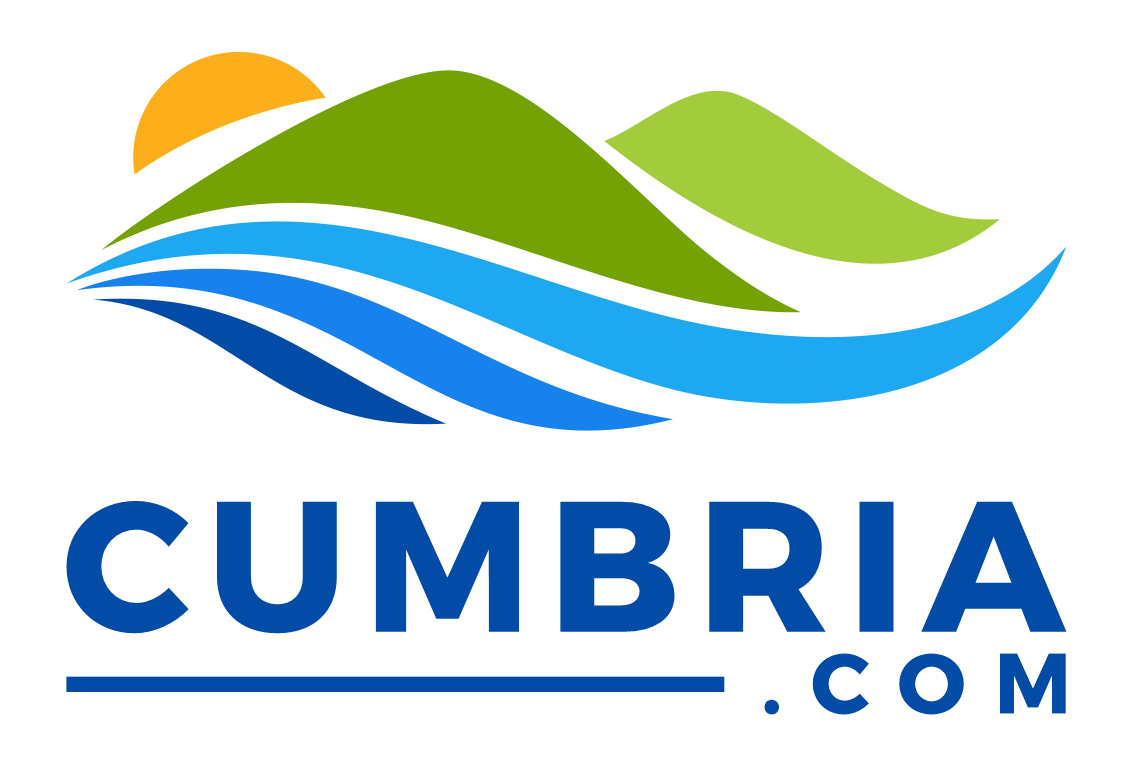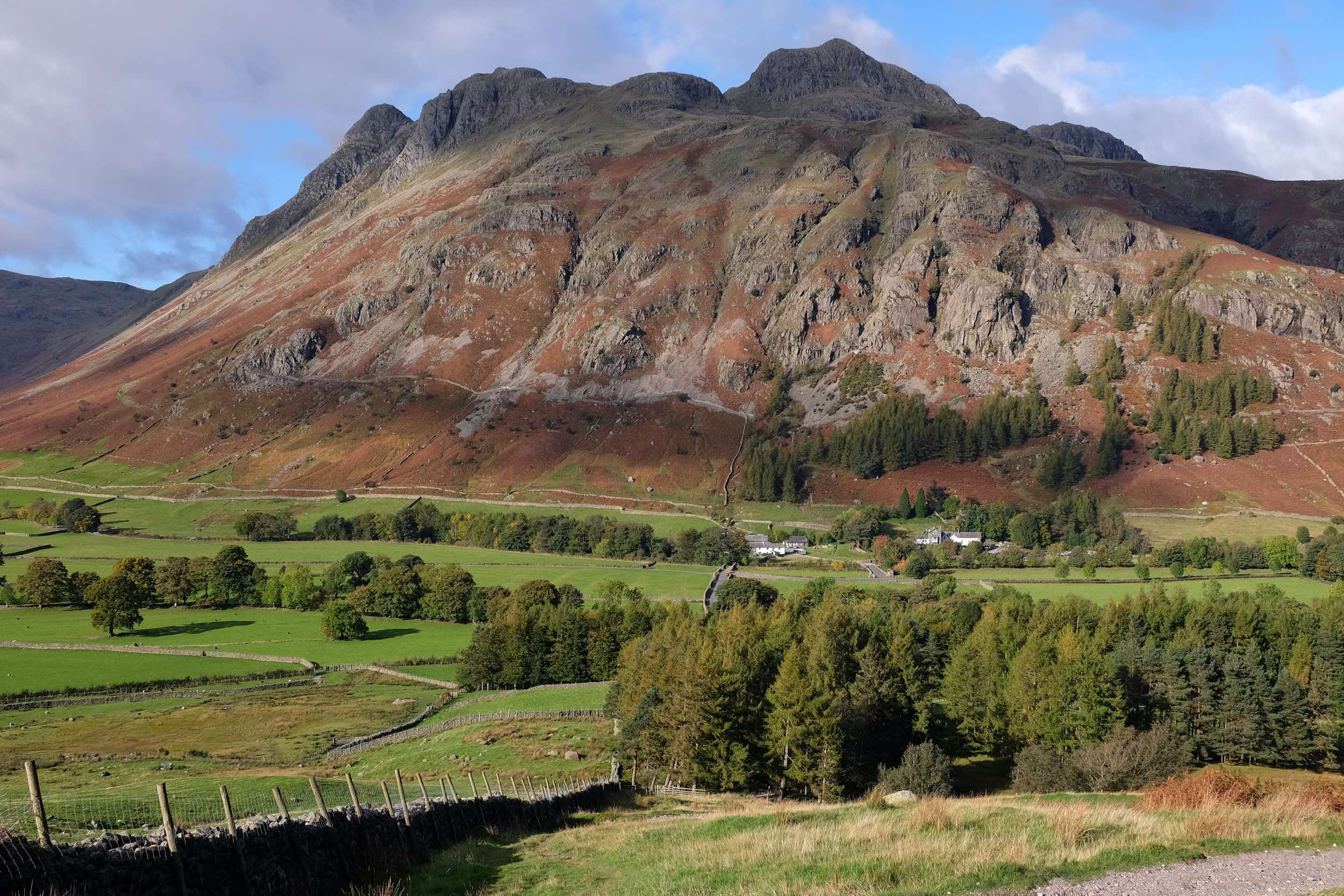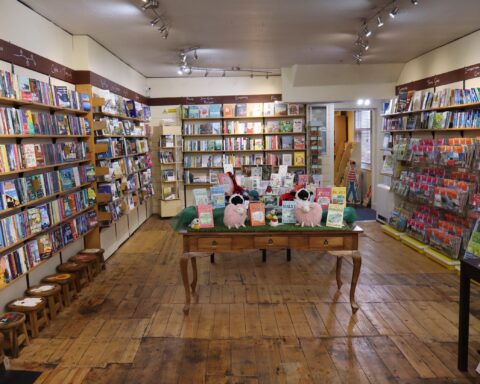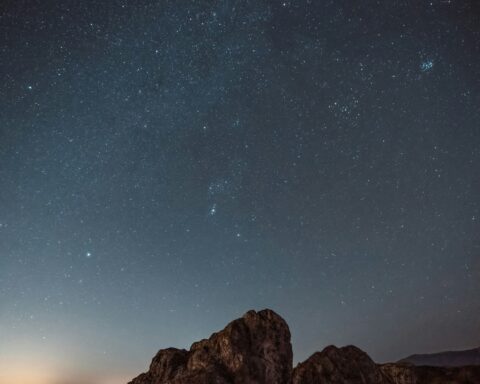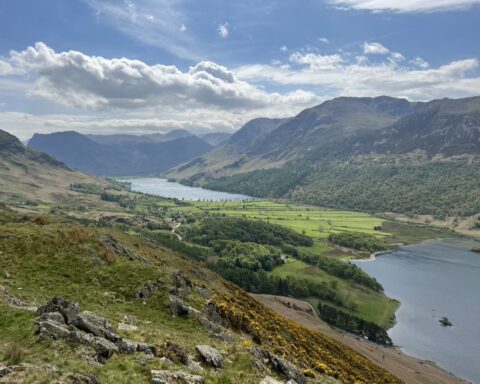Head west from Ambleside and you’ll notice the fells slowly closing in around you. The valley narrows, and the ground rising up on either side becomes steeper and rockier. Great Langdale is probably the most spectacular of Lakeland’s inhabited valleys.
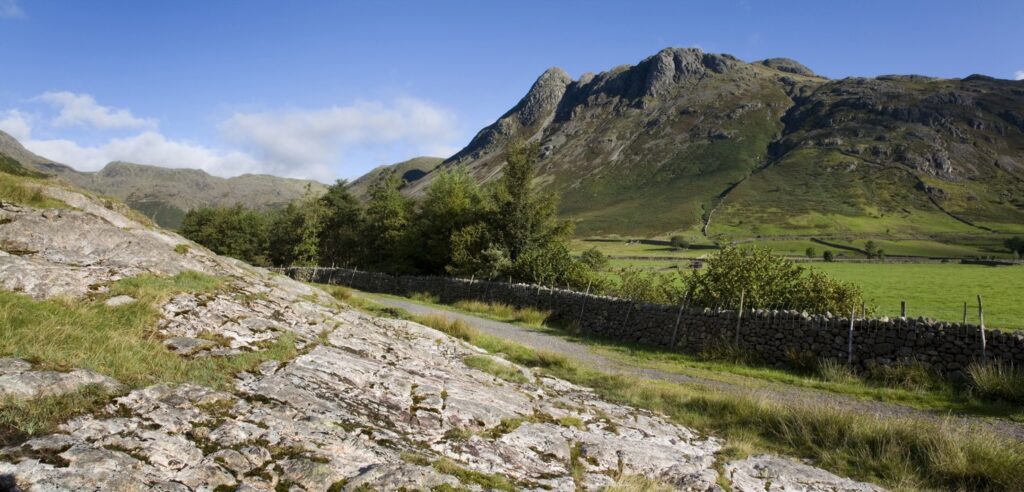
Skelwith Bridge: The Gateway to Great Langdale
The journey into the valley begins where the A593 crosses the River Brathay at Skelwith Bridge. While some travellers continue to Coniston, those with their sights set on Great Langdale turn off here. Skelwith Bridge is home to Skelwith Force, an impressive waterfall worth visiting not for its height but for the sheer volume of water that comes thundering over its rocky lip.
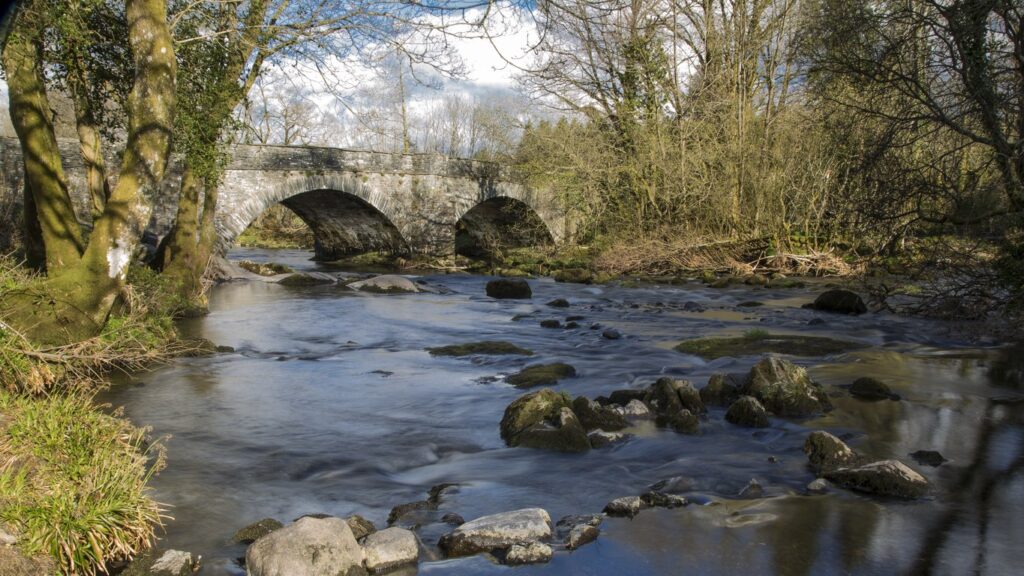
A short walk away is Loughrigg Tarn, with its idyllic view of the Langdale Pikes. The poet William Wordsworth referred to this beautiful body of water as “Diana’s looking glass” after the Italian Lake Nemi, said to be the mirror of Diana, the Roman goddess of nature and fertility.
Elterwater: Swans and Scenic Strolls
The first village in the valley is Elterwater. With a National Trust car park, public toilets, a pub and a café-cum-restaurant, this former industrial settlement is popular with walkers – those looking for gentle riverside strolls and those heading for the higher ground. The name Elterwater comes from the Norse for ‘swan lake’ and, some winters. Migratory whooper swans still grace the reedy lake with which the village shares its name.
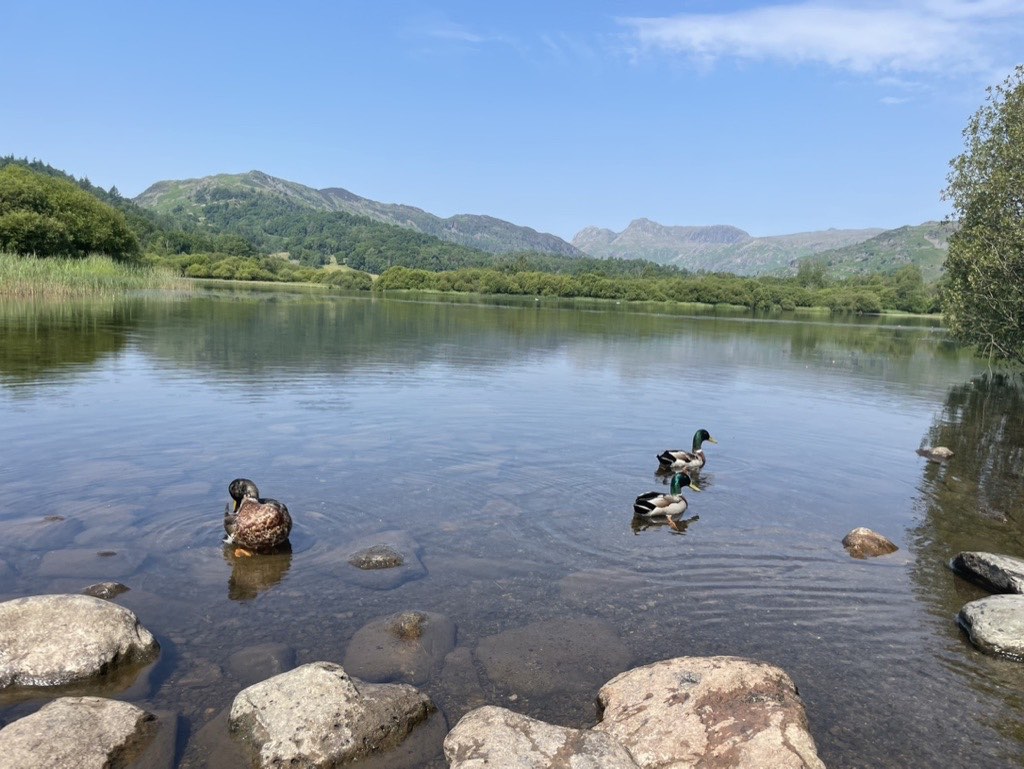
Chapel Stile and Copt Howe: Ancient Enigmas
Just beyond the village of Chapel Stile is one of Cumbria’s most cryptic prehistoric sites – Copt Howe, a large boulder featuring rock art believed to have been created between 4,000 and 6,000 years ago. The meaning of the cup-and-ring markings, half-moon shapes and concentric circles carved into the smooth rock has been lost, although it has been suggested they represent a map of the surrounding peaks.
The Majestic Langdale Pikes and Beyond
As the valley narrows, the Langdale Pikes loom and then. Finally, your westward journey is halted by a wall of high fells, including Crinkle Crags and Bow Fell. You’ll still find casual ramblers setting off from the car parks near the head of the valley, enjoying these awe-inspiring peaks from the dale-bottom paths, but this is mostly hill-walking country now, a place to lace up those boots and make sure you’ve remembered your waterproofs. It’s also climbing country, and you’ll often see ‘crag rats’ clinging to the rock faces above the Old Dungeon Ghyll, a hotel and bar closely associated with the climbing pioneers of the late nineteenth and early twentieth centuries.
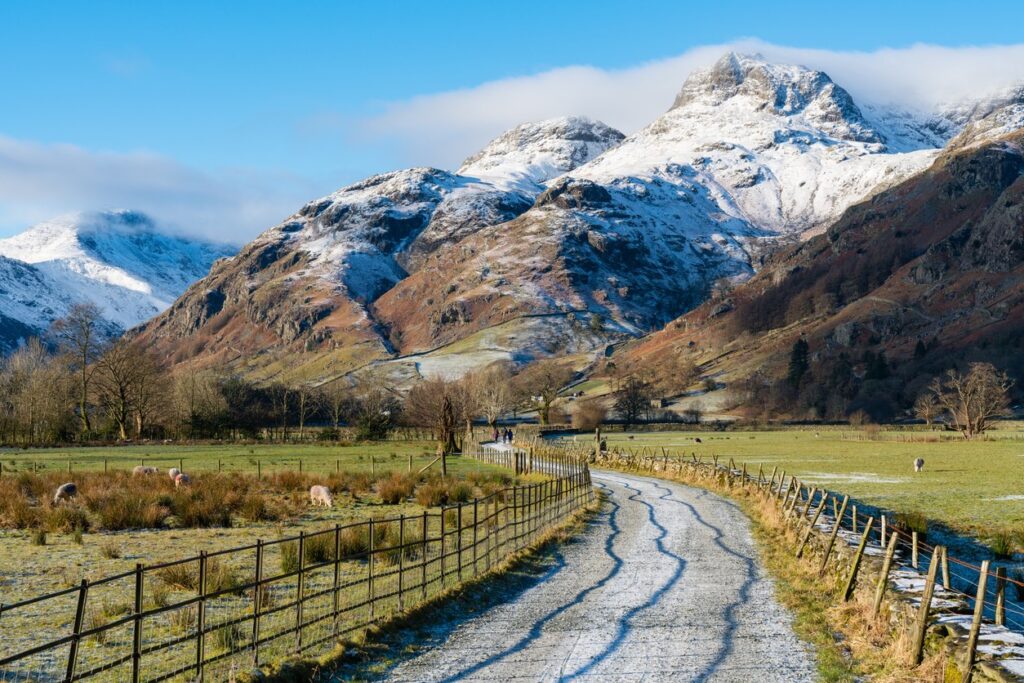
Travelling the Langdale Rambler Route
One of the best and most relaxing ways to experience Great Langdale is to catch the 516 Langdale Rambler bus from Ambleside. This regular service operates all year round and takes about 35 minutes to reach the head of the valley, terminating at the Old Dungeon Ghyll.
Blea Tarn Pass and Little Langdale: Hidden Gems
The main valley road, the B5343, ends at the ODG, but a narrower, more challenging road heads south from here, winding its way up and over Blea Tarn Pass. The tarn is situated in a dip between Lingmoor Fell and Pike o’ Blisco, but the view of the Langdale Pikes, flawlessly framed in the gap, makes this spot so picture-perfect – and so popular with photographers.
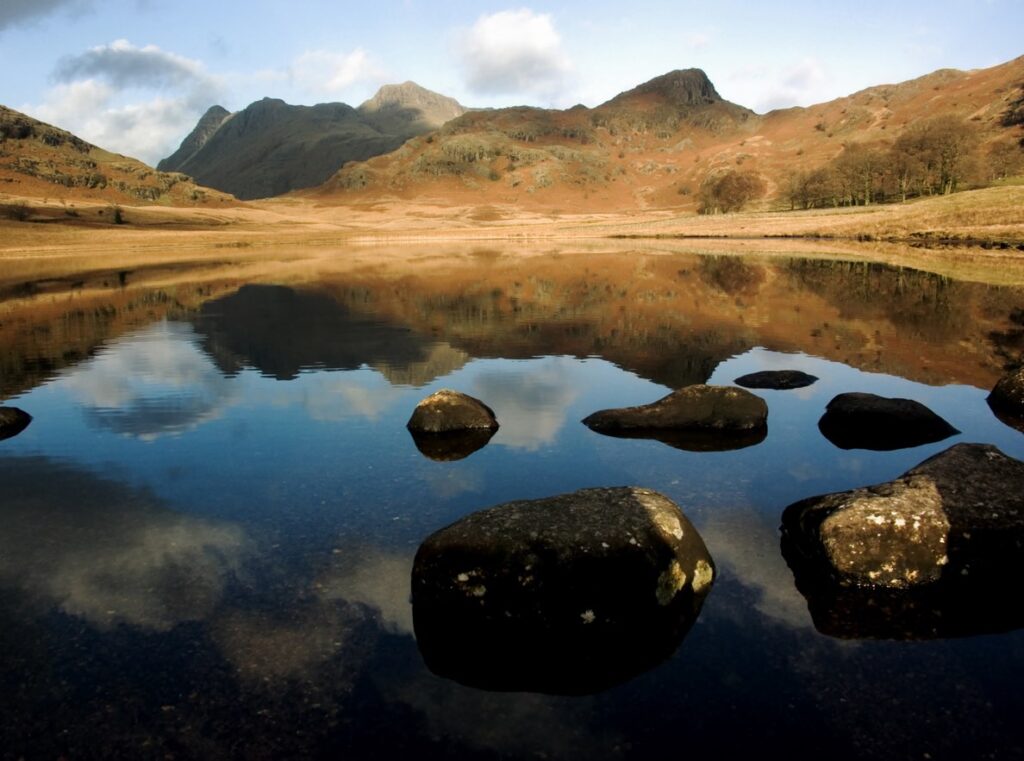
Beyond Blea Tarn Pass is Little Langdale, Great Langdale’s shy and retiring neighbour. While the main valley shouts its grandeur from the fell-tops, Little Langdale’s more subtle delights are hidden away – attractions such as Little Langdale Tarn, ancient Slater Bridge, and Cathedral Cave, a massive chamber used as a location in the 2012 film Snow White and the Huntsman. If you are interested in other film locations check out our article “Filming locations in Cumbria to zoom in on“.
Booking.com